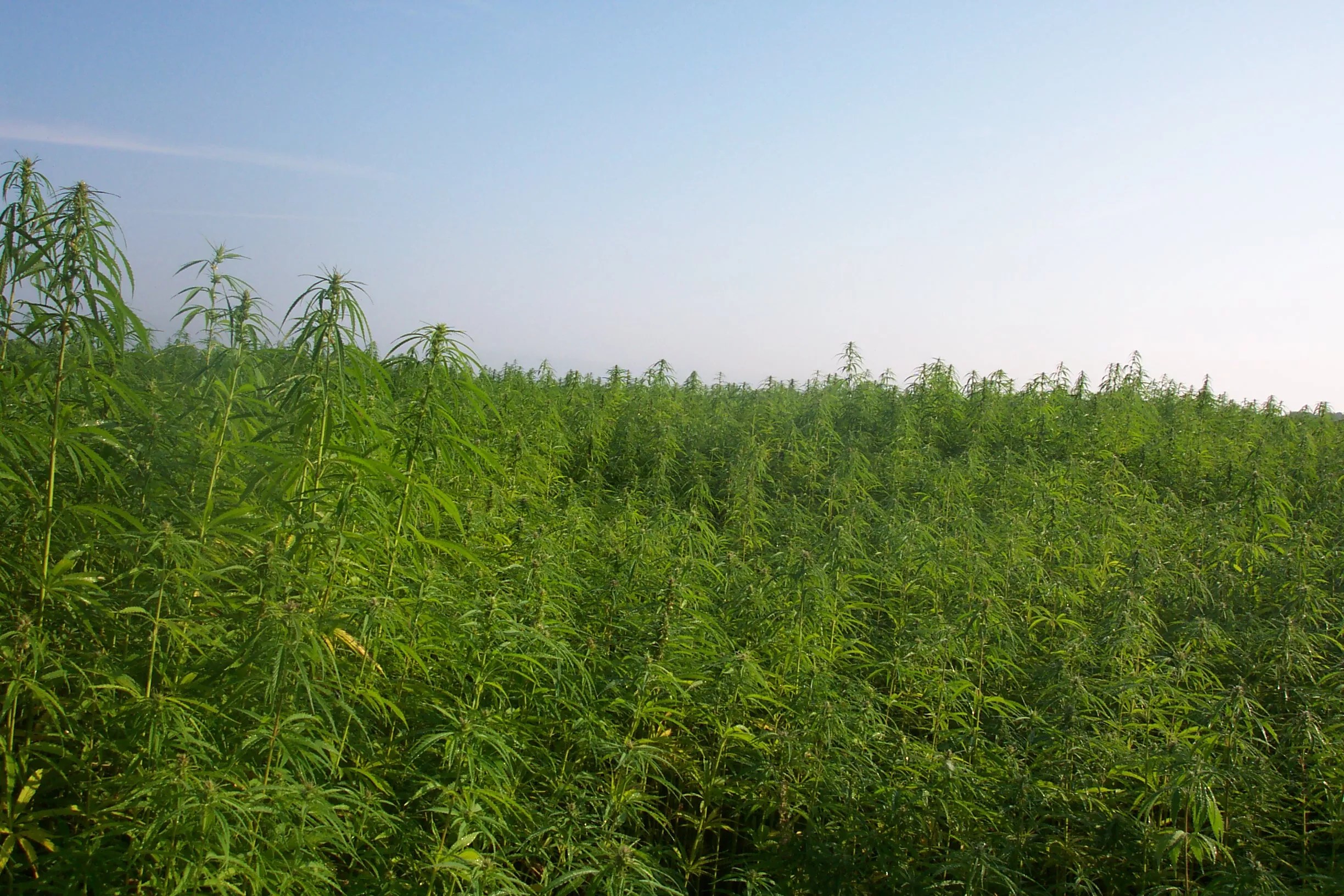

Audio By Carbonatix
Chris Martin’s Arizona-based CBD business has increased steadily over the past few years without too many hitches, so he was surprised a few days ago to receive an ominous letter from federal criminal investigators.
“I’ve never had a package seized,” he said on Friday, “all of a sudden there’s a criminal investigation.”
He noted that the letter came less than a week after President Donald Trump signed the Agricultural Improvement Act of 2018. The collection of agricultural-law updates contains a historic provision that removes hemp from the federal Controlled Substances Act, allowing it to be grown widely – under various restrictions – in the United States for the first time in decades. But industry experts caution that the effects of the law and how it can be applied, especially to end-use hemp products with CBD, is far from settled.
Martin said he fears the timing of his letter may indicate that the feds are cracking down on one end of the business following the Farm Bill’s passage.

Chris Martin, Phoenix medical-cannabis entrepreneur.
Jim Louvau
He and his family run Hempful Farms, an expanding chain of stores that sell hemp-based items and an online service offering CBD-infused products for people and pets. Phoenix New Times featured him last year in an article about the industry, “The CBD Oil Boom: Making Money on Medical Marijuana for the Masses.”
The letter dated December 26 to Paw Puddy, the company’s pet division, from the U.S. Postal Inspection Service’s Criminal Investigations Services Center doesn’t exactly indicate an investigation is ongoing. But given the sender and the tone, it doesn’t sound good for Paw Puddy:
“The purpose of this letter,” it states, “is to advise you that pursuant to 39 U.S.C. [article] 3001, and U.S. Postal Service regulations, an item placed into the U.S. Postal Service mail stream is currently being withheld from delivery as there are reasonable grounds to believe its contents are nonmailable as proscribed in U.S. Postal Publication Service 52, Hazardous, Restricted, and Perishable mail.”
The products sent to a customer weren’t perishable – they were soap and CBD oil, Martin said. In other words, they were the typical goods mailed out to customers. The letter, (see below), asks the company to call the postal service for questions, and gives instructions on how to appeal the decision. No other products have been stopped by the post office, but Martin is concerned.
“We called and let them know we didn’t give them permission to search the package,” he said. “They can talk to our attorneys.”
The post office said they might hear back in a couple of days, he said. He noted that the post office made a decision in November that mailing CBD was legal.
In the meantime, while some mailed CBD continues to be the target of police actions in other states, such enforcement doesn’t seem to be happening on a state level in Arizona.
Whether or not the timing of the letter means Paw Puddy’s in actual trouble, Martin’s concern is a reminder that a crackdown on CBD remains possible given current federal guidelines. Hemp, made from the cannabis sativa L. plant, contains 0.3 percent THC by law, and can’t get people stoned. But it remains under much tighter federal regulation than tomatoes or alfalfa.
On the day Trump signed the bill, the Food and Drug Administration issued a lengthy update about the agency’s powers and policies concerning CBD.
“We’ll take enforcement action needed to protect public health against companies illegally selling cannabis and cannabis-derived products that can put consumers at risk and are being marketed in violation of the FDA’s authorities,” FDA Commissioner Dr. Scott Gottlieb said in the statement. He added that warning letters were previously sent to companies “illegally selling CBD products that claimed to prevent, diagnose, treat, or cure serious diseases, such as cancer.”
Both CBD and THC have been studied for current, FDA-approved drugs, and both fall firmly under the FDA’s purview regardless of the legal status of hemp, the statement said. The agency urged companies to obtain FDA approval for CBD products marketed as dietary supplements for people or animals.
At the same time, Gottlieb’s statement for the first time grants blanket approval for “hulled hemp seeds, hemp seed protein and hemp seed oil,” deeming them “safe” as food additives. The statement also holds out the possibility that FDA could find legal “pathways” for consumed CBD items, and is “taking new steps to evaluate whether we should pursue such a process.”
All of which gives cannabis revolutionaries like Martin both hope and worry. He knows what prison is like. He served two years on a weapons charge related to his previous business, a medical-marijuana edible company called Zonka. His company sold products to compassion clubs after voters approved the 2010 medical-marijuana act, but before dispensaries were legal.
He’s been out for more than a year now and his passion for the cannabis business is at full tilt. Hempful Farms just opened stores in Chico, California, and Los Lunas, New Mexico, and he and other investors are considering farming hemp on 30 acres in Camp Verde, he said.
“People want to offer it to us, see if we can get it licensed to grow on,” Martin said of the Camp Verde project.
Martin and other would-be Arizona hemp growers may get the chance sooner than expected. Arizona Governor Doug Ducey signed SB 1098 in May, making the state the 35th to make hemp legal under state law, and the 11th to approve hemp cultivation and sales, all contingent on approval by the feds.
After the Farm Bill signing, Brian McGrew, the industrial hemp program manager for the state Department of Agriculture, sent an email to people interested in the industry explaining that “emergency provisions” are in the works to move the date of licensing for hemp growers from August to May 2019. (See the state’s convenient fact sheet below for more info about the Arizona program.)
Lezli Engelking of the industry advisory group Foundation of Cannabis Unified Standards said that hemp “offers a unique and sustainable solution” to a number of applications. But she agreed that the strong growth of CBD products is, for now, what’s driving the hemp industry.
For the hemp businesses to flourish as government leaders expect it to, the CBD question must be answered. Engelking’s group, which bills itself as a nonprofit, independent creator of hemp-industry standards, released a statement last week explaining that the FDA’s stance against much of the current CBD industry wasn’t new, and that “removing hemp from the CSA did not make the sale of CBD products across state lines legal in the U.S.”
Engelking told Phoenix New Times she thought the Farm Bill and expected guidance from the FDA would lead to an improved market of hemp products.
“The good thing about this, it will bring some legitimacy and safety and protections to the product,” she said.